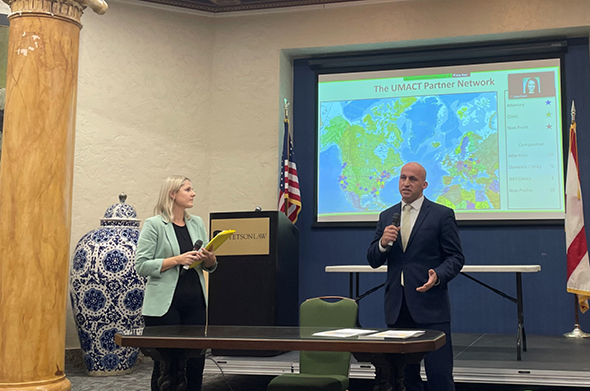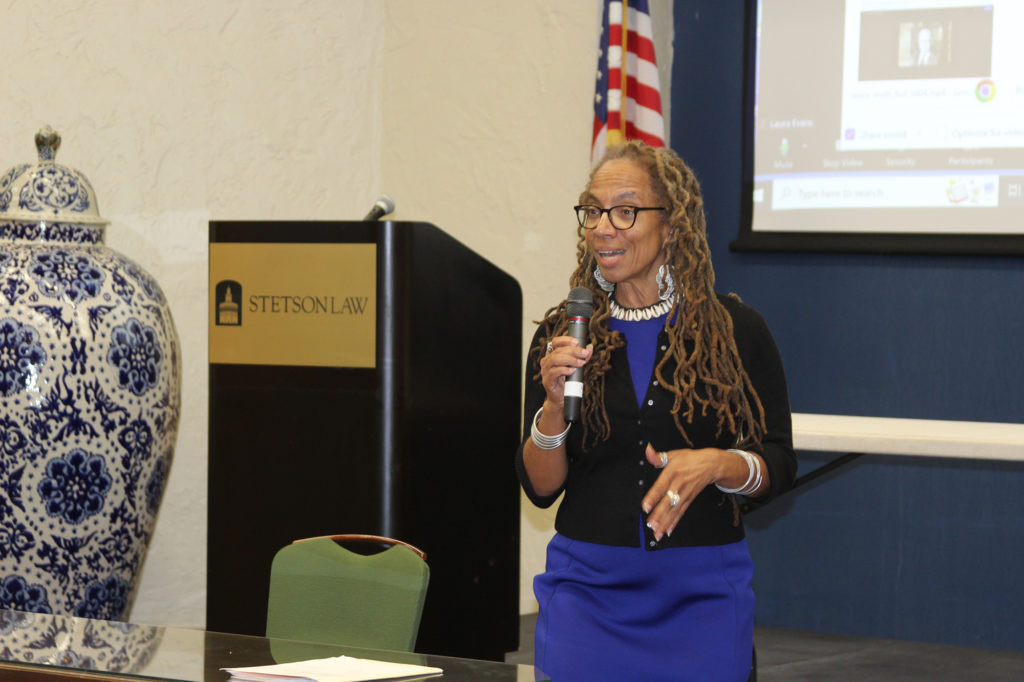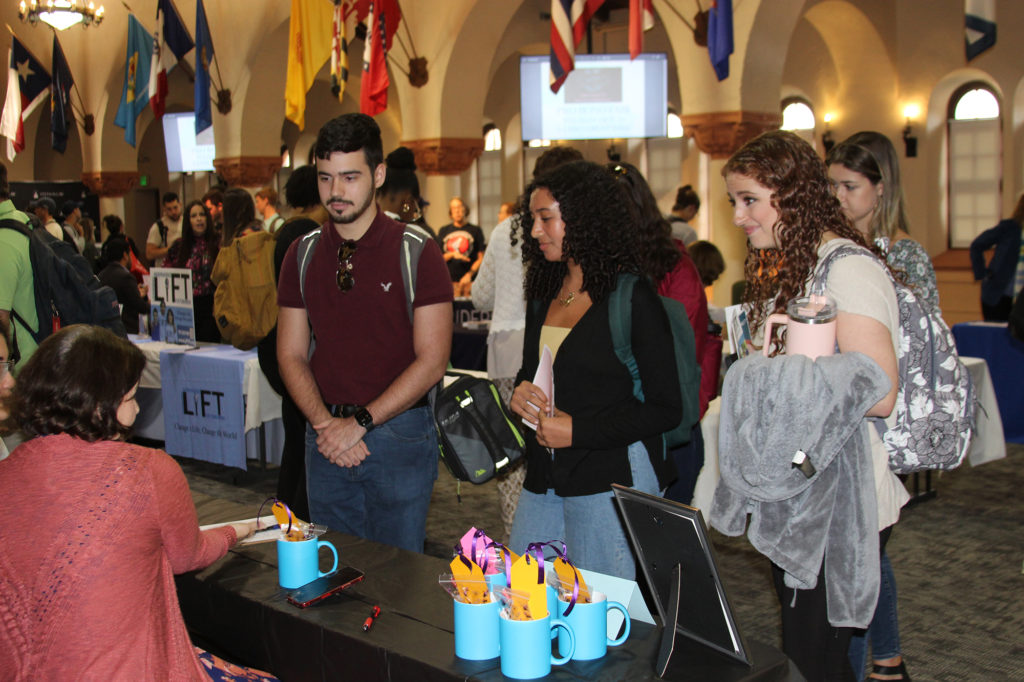30 Years On, Pro Bono Still Embodies Stetson Spirit of Public Service

For Stetson Law 3L Francesca Little, whose family emigrated to the U.S. from Venezuela when she was five, using her growing set of legal skills to help other immigrants was an obvious choice.
As a law student, Little is required to complete a minimum 60 hours of pro bono (volunteer work), at least 30 of that in a legal capacity, as part of Stetson Law’s pioneering pro bono program. So, she harnessed her passion for helping families deal with the daunting immigration process through volunteer work with entities like Bay Area Legal Services and an immigration law clinic offered through Gulf Coast Legal Services.
“I have gone through what they have gone through, so I want to help them as much as I can,” she said.
Little gave one of five presentations at Stetson Law’s Sixth Annual William Reece Smith, Jr. Pro Bono Challenge, an event that invited 3L students to share their experiences doing legal pro bono work for social justice-related cases and causes Tuesday afternoon in Mann Lounge. Named for a former American Bar Association president who advocated for equal access to justice in Florida and beyond, the event showed how law students interested in social justice advocacy at Stetson Law can work on behalf of clients and nonprofits who cannot afford traditional legal representation.
There’s a mutual benefit for students: they get real-world experience, they make professional contacts in the areas and causes of most interest to them, and they get to make a difference.
“There’s a global impact at stake here,” Little said.
Showcasing pro bono opportunities
A number of students applied to be part of the program, including quite a few submissions that were “really impressive,” said Law Professor Kristen Adams, who co-organized the event with Law Professor Judith Scully. Their range of experiences demonstrated how easy it is to gain fulfilling pro bono experience tailored to their schedules and workloads.

“Some of the students had done really intensive work at a single organization; others had experiences at a lot of different organizations,” Adams said. “Some of the students work remotely. Others did in-person work. Some work was civil in nature. Other work was focused on criminal-oriented work. Some was litigation-focused; other work was transactional.”
The student speakers at Tuesday’s showcase did extensive work in immigration law, advocated on behalf of child abuse victims, and more. Two helped Ukrainian women apply for U.S. travel visas through their work with Ukrainian Mothers and Children Transport, a network of lawyers, professors, and law students that works to help women and children flee war-torn Ukraine.
A storied tradition
The Pro Bono showcase may be in its sixth year, but pro bono work has been a priority at Stetson Law for much longer.
Back in 1990, Stetson Law officials announced a novel approach to legal education: requiring all law students and faculty to perform a minimum number of pro bono hours in service to low-income individuals and community causes. It went into effect in 1992.
A 1991 story in the Tampa Bay Times marveled at how it was “quiet little” Stetson Law – which at the time was just beginning to raise its profile as an advocacy powerhouse – that was instituting such an innovative program, and not a more famous law school. To Stetson Law leadership, the answer was obvious:
“It’s a really good educational opportunity for students to become aware of the need for public service, and of the ability as lawyers, and just as people, to help out,” Law Professor Rebecca Morgan said at the time.
Pro bono opportunities abound
As the students shared their pro bono stories in Mann Lounge, the was a flurry of related activity across the way in the Great Hall.

There, students explored tables from a variety of organizations offering pro bono opportunities, including private law offices, agencies like Florida Department of Environmental Protection, Gulf Coast Legal Services, and others.
Couldn’t make it to either event? Learn more about pro bono service at Stetson Law.
Enter this year’s pro bono challenge.
Post date: Oct. 13, 2022
Media contact: Kate Bradshaw
[email protected] | 727-430-1580